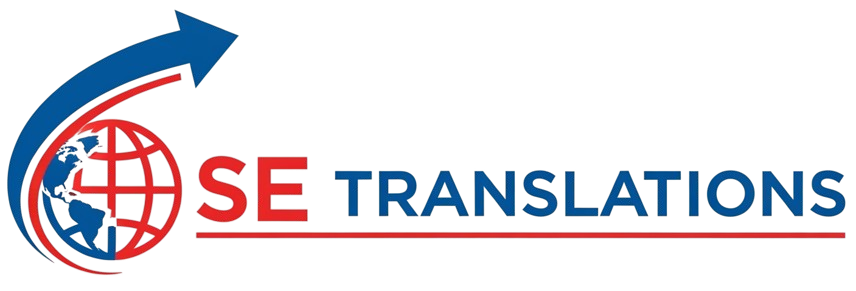Document Translation Services
Bangla Personal Document Translation Services UK
If you require professional Bangla Personal Document Translation Services in the UK, accuracy and official acceptance are essential. Personal documents such as birth certificates, marriage certificates, and identification records often need certified translation before submission to UK authorities, educational institutions, or legal representatives.
We provide reliable and professionally formatted Bangla to English personal document translation UK services, ensuring your documents are translated clearly, certified properly, and ready for official use across the United Kingdom.
Certified Bangla Personal Document Translation UK
Many UK authorities require certified translations of personal documents originally issued in Bangla. Our Certified Bangla personal document translation UK service includes a signed certification statement confirming that the translation is a true and accurate representation of the original document.
Our certified translations are suitable for submission to:
- UK Home Office
- UK Visas and Immigration (UKVI)
- Solicitors and legal representatives
- Educational institutions
- Local councils
- Government departments
- Financial institutions
Certification confirms translation accuracy only. We do not provide legal advice or verify document authenticity. Responsibility for the original document remains with the client.
Personal Documents We Translate
Our Bangla personal document translation services UK cover a wide range of civil and personal records, including:
- Bangla birth certificate translation UK
- Bangla marriage certificate translation UK
- Bangla divorce certificate translation UK
- Bangla death certificate translation UK
- Bangla character certificate translation UK
- Bangla experience certificate translation UK
- Bangla police clearance certificate translation UK
- Bangla passport translation UK
- Bangla national ID translation UK
- Bangla driving licence translation UK
Each document is translated carefully to preserve names, dates, official stamps, and reference numbers with complete accuracy.
Bangla Birth & Marriage Certificate Translation UK
Birth and marriage certificates are among the most commonly requested documents for certified translation. Even a minor spelling error in names or incorrect date formatting can lead to delays.
Our Certified Bangla birth certificate translation UK and Bangla marriage certificate translation UK services ensure:
- Accurate translation of personal details
- Correct date formatting
- Clear presentation of official seals and references
- Professional English structure
These translations are formatted clearly for official submission across the UK.
Bangla Certificate Translation UK
Certificates often need professional translation for immigration, education, or administrative purposes. We provide Bangla certificate translation UK services for:
- Academic certificates (basic level only; detailed academic records are handled under Academic Translation Services)
- Character certificates
- Experience certificates
- Police clearance certificates
- Civil registration certificates
Our approach ensures the translated certificate reflects the original document precisely and professionally.
UK Accepted Bangla Document Translation
Official bodies in the UK require translations that are properly structured and clearly formatted. Our UK accepted Bangla document translation service ensures:
- Clear and consistent spelling of names
- Accurate reproduction of numbers and dates
- Professional layout
- Certified confirmation statement
- Structured English presentation
This reduces the risk of rejection or requests for clarification.

Urgent Bangla Personal Document Translation UK
Sometimes personal documents are required urgently — whether for visa submission, official registration, or legal procedures. We provide urgent Bangla personal document translation UK options depending on document length and complexity.
Fast turnaround is available while maintaining professional accuracy and quality standards.
Before starting, we provide:
- Clear timeframe
- Transparent quotation
- Delivery expectations
Confidential Handling of Personal Documents
Personal documents contain sensitive information. Our Bangla personal document translation services UK follow strict confidentiality standards to protect your privacy.
We ensure:
- Secure document submission
- No third-party sharing
- Controlled access during translation
- Professional communication
Your documents are handled with complete discretion and care.

Why Choose Our Bangla Personal Document Translation Services UK?
Choosing a reliable provider for personal document translation is important when dealing with official matters.
Here’s what you can expect:
- Certified Bangla to English personal document translation
- UK accepted certification statement
- Accurate handling of names, dates, and official details
- Clear and professional formatting
- 100% human translation
- Fast turnaround options
- Confidential document handling
- Transparent and competitive pricing
We focus on delivering translations that are accurate, certified, and ready for official use across the UK.
Our Document Translation Process
We follow a structured process to ensure quality and compliance:
Step 1 – Secure Submission
Send your Bangla personal document via secure upload or email.
Step 2 – Review & Quote
We assess the document type and provide a clear quotation.
Step 3 – Professional Translation
An experienced translator completes the Bangla to English translation.
Step 4 – Quality Review
We review spelling, formatting, and accuracy carefully.
Step 5 – Certification & Delivery
You receive the certified translation in digital format, ready for submission.
Personal document translation is one of the many services we provide. Learn more about our complete Bangla Translation Services in the UK.
Need Certified Bangla Personal Document Translation?
If you require professional Bangla Personal Document Translation Services UK, contact us today for a fast and competitive quotation.
We provide accurate, certified, and professionally prepared translations suitable for official use throughout the United Kingdom.
Yes. Our certified translations are suitable for official submission across the UK.
Yes. We provide certified Bangla birth and marriage certificate translation UK services.
Turnaround depends on document length and urgency. Fast options may be available.
Yes. All documents are handled securely and confidentially.
Pricing depends on document type, length, and urgency. Contact us for a clear quote.
